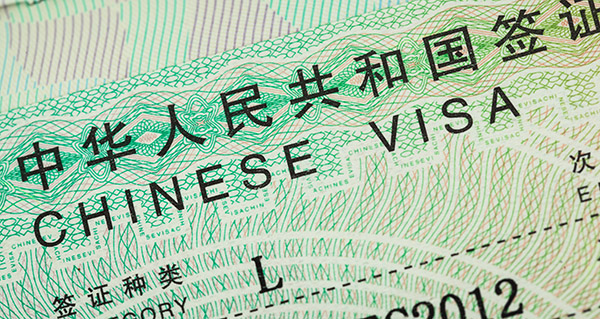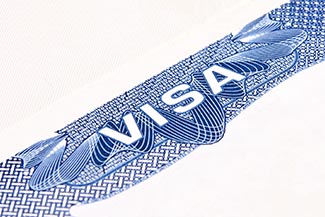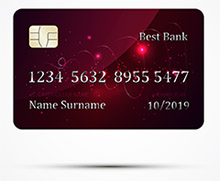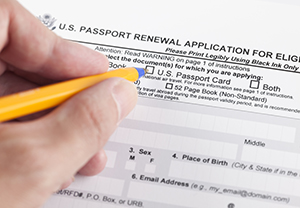U.S. citizens planning to travel to China must obtain a Chinese Entry Visa before arriving in China. Requirements for U.S. citizens attempting to obtain a Chinese Entry Visa are different from citizens of other countries. So, it’s important to ensure you fully understand the application process.
A Chinese entry visa can be a tourist or business visa. Regardless, you must provide the same documents when you apply. If you enter as a tourist, then you apply for a tourist visa. If your trip is business related, then apply for a business visa.
Who Needs A Chinese Entry Visa?
All U.S. citizens must obtain a Chinese Entry Visa before arriving in China, with the exception of the 72-Hour Visa-Free Transit Program. Landing visas are not available on arrival in China. Lack of a proper entry visa will result in deportation and possible detention.
What Kind Of Visa Should I Apply For?
There are four types of Chinese Entry visas: diplomatic visa, courtesy visa, service visa, and ordinary visa. Ordinary visas are categorized into 12 or 16 types.
The ordinary visa types include Chinese phonetic letters: L, M, F, Z, X1, X2, S1, S2, Q1, Q2, C, J-1, J-2, G, D, and R.
Tourist Visa (L)
- Issued to anyone going touring and sightseeing
- Proof of travel, such as flight confirmation and hotel reservation, is required
- Single-entry, double-entry, or multiple-entry available
- Duration of stay is 30-60 days
- Valid for ten years
Business Visa (M)
- Issued for commercial and trade activities
- Single-entry, double-entry, and multiple-entry available
- Duration of stay is 30-60 days
- Valid up to 10 years
Non-Commerce Visa (F)
- Issued for research, lecture, scientific, cultural exchange, and study
- Single-entry and double-entry only
- Duration if the stay is 30-90 days
Work Visa (Z)
- Must have a work permit or employment license first
- Issued for conducting commercial performance
- Single-entry only
Study Visa (X1/X2)
- Issued to students accepted by a Chinese college
- X1 is for students staying more than six months
- X2 is for students staying less than six months
- X1 visa issued for multiple entry and valid for five years
- X2 visa issued for single-entry only
Private Visa (S1, Long Term)
- Issued to visit immediate family members
- Immediate family includes spouse, parents, sons or daughters, or parents-in-law.
- You must show proof of kinship
- Stay duration must be 180 days or longer
- Single-entry only
- Must register and apply, within 30 days of entry, for a residency permit
Private Visa (S2, Short Term)
- Issued to visit immediate family or private matters
- Private matters include friends, divorce, inheritance, adoption, marriage, or medical services
- Stay duration is 30-90 days
- Multiple-entry
Family Visa (Q1, Long Term)
- Issued to family members of Chinese citizens or someone with Chinese permanent residency
- Stay duration exceeds 180 days
- Single-entry only
- Must register and apply, within 30 days of entry, for a residency permit
Family Visa (Q2, Short Term)
- Issued to Chinese descendants or foreigners who are the spouse of Chinese citizens
- Stay duration is up to 120 days
- Issued for multiple-entry
Crew Visa (C)
- Issued to crew members, including:
- Aircraft, trains, ships, and motor vehicle drivers
- Family members of crew members
- Multiple-entry
Group Visa
- Issued to tourist groups of at least five members
- One official visa notification letter is required
Transit Visa (G)
- Similar to a tourist visa
You should apply for the visa that is most appropriate to your purpose of travel to China. The length of validity and allowance activities vary depending on the kind of visa. More information about visas is available on the Chinese Embassy website.
Where Should I Apply?
U.S. citizens must apply for a visa at a Chinese Embassy or Consulate General in their State of residence. In general, you don’t need to appear in person unless the consular officer says so.
A friend or visa processing agency can submit the completed forms and the necessary supporting documents. An appointment is not required, and applications are not accepted by mail.
Required Documents And Processing Fees
Required documents and processing fees vary depending on the visa you are applying for. A full list of required documents and processing fees is available at the Chinese Embassy website.
How Long Does The Visa Application Process Take?
Applications are usually processed within four days, though the embassy recommends applying at least one month in advance. An express service is available for an additional fee.
What Is The 72 Hour Visa-Free Transit Program?
The 72-Hour Visa-Free Transit Program allows visitors from 53 countries to enter 18 Chinese cities without a visa.
The following 53 countries and regions will be given a visa-free stay up to 72 hours while transiting via Beijing Capital Airport, Shanghai Pudong Airport, Shanghai Hongqiao Airport, and airports of Guangzhou, Chengdu, Chongqing, Shenyang, Dalian, Harbin, Xi’an, Guilin, Kunming, Hangzhou, Wuhan, Tianjin, Qingdao, Nanjing, Changsha, and Xiamen.
The countries granted the visa-free stay for 72 hours are:
Schengen Agreement Countries: Austria, Belgium, Czech Republic, Denmark, Estonia, Finland, France, Germany, Greece, Hungary, Iceland, Italy, Latvia, Lithuania, Luxembourg, Malta, Netherlands, Poland, Portugal, Slovakia, Spain, Sweden, Switzerland
Other European Countries: Russia, United Kingdom, Ireland, Cyprus, Bulgaria, Romania, Ukraine, Serbia, Croatia, Bosnia-Herzegovina, Montenegro, Macedonia, Albania, Belarus, Monaco
American Countries: United States, Canada, Brazil, Mexico, Argentina, Chile
Oceania Countries: Australia, New Zealand
Asian Countries: Korea, Japan, Singapore, Brunei, United Arab Emirates, Qatar
Passengers require an onward ticket to a third country departing within 72 hours. The passenger must also depart from the same airport they arrived at. Passengers can apply for the program on arrival at the airport in cities participating in the program.
Further Warnings
A valid Chinese Entry Visa is not a guarantee to enter China. The Chinese Border Control Authority decides who enters China at the port of entry. This is done in accordance with Chinese Laws and Regulations.
Your passport must be valid for at least six months from the date of arrival. In addition, you must have at least two blank pages.
Conclusion
The Visa Waiver Program for Asian Countries is a great way to visit these countries without the hassle of obtaining a visa. It allows citizens of participating countries to enter these countries for business, tourism, and transit purposes. However, it’s important to remember that you must meet all the requirements before traveling. Be sure to plan ahead, so you have everything you need to ensure a successful trip. It’s also important to know that the Chinese Border Control Authority has the ultimate authority in deciding who can and cannot enter China, so be sure to prepare for their requirements as well. With proper planning and research, you can make your travels abroad without any hassle! Happy traveling!















 The Best Way to Renew a Passport Cheaply
The Best Way to Renew a Passport Cheaply